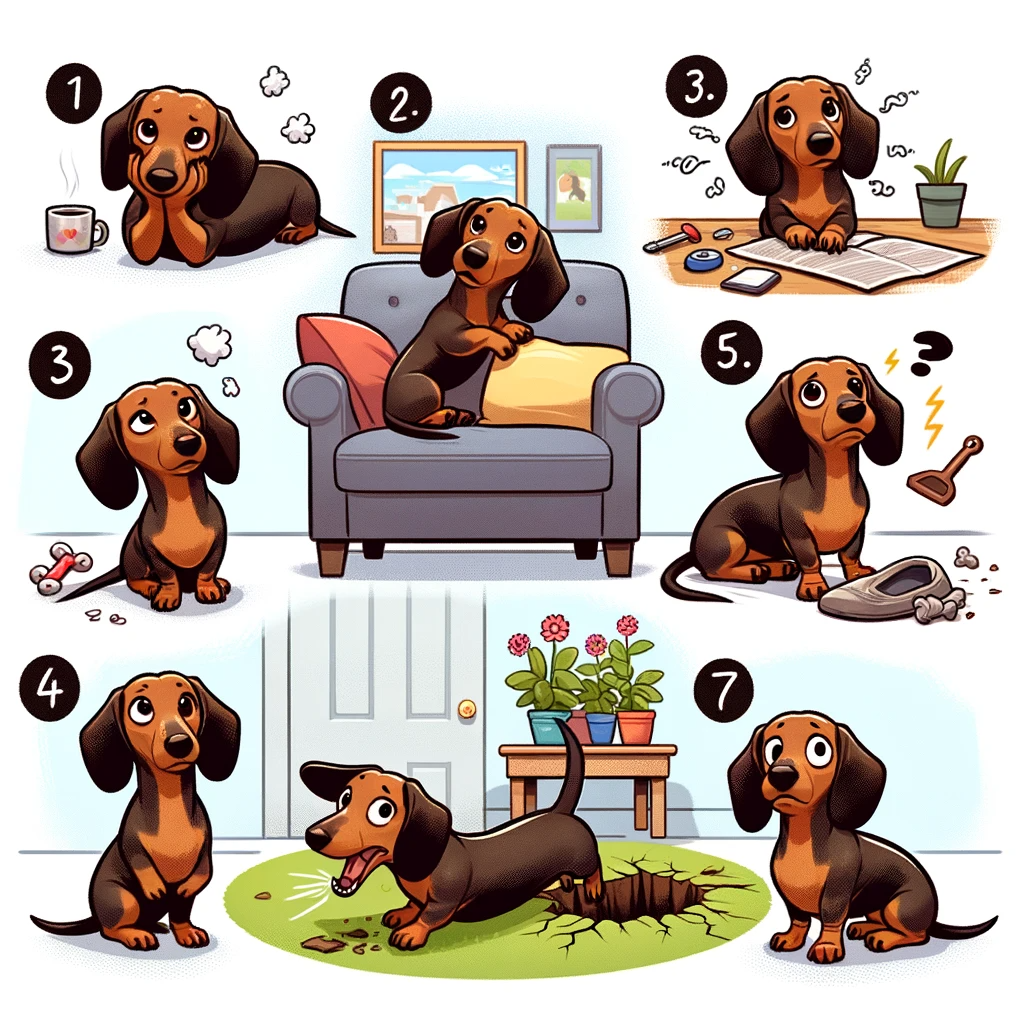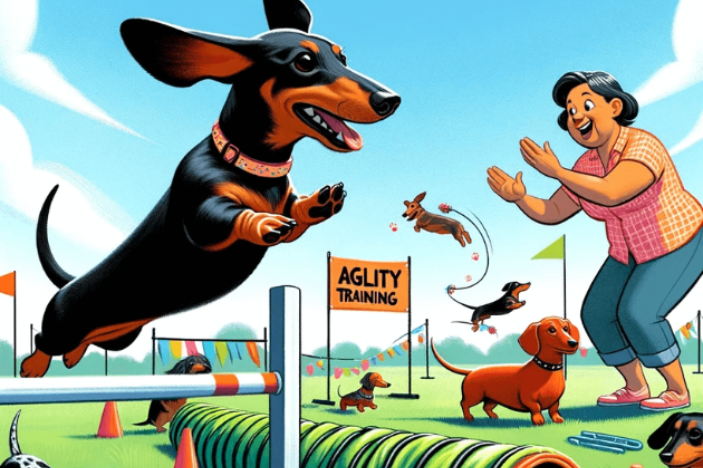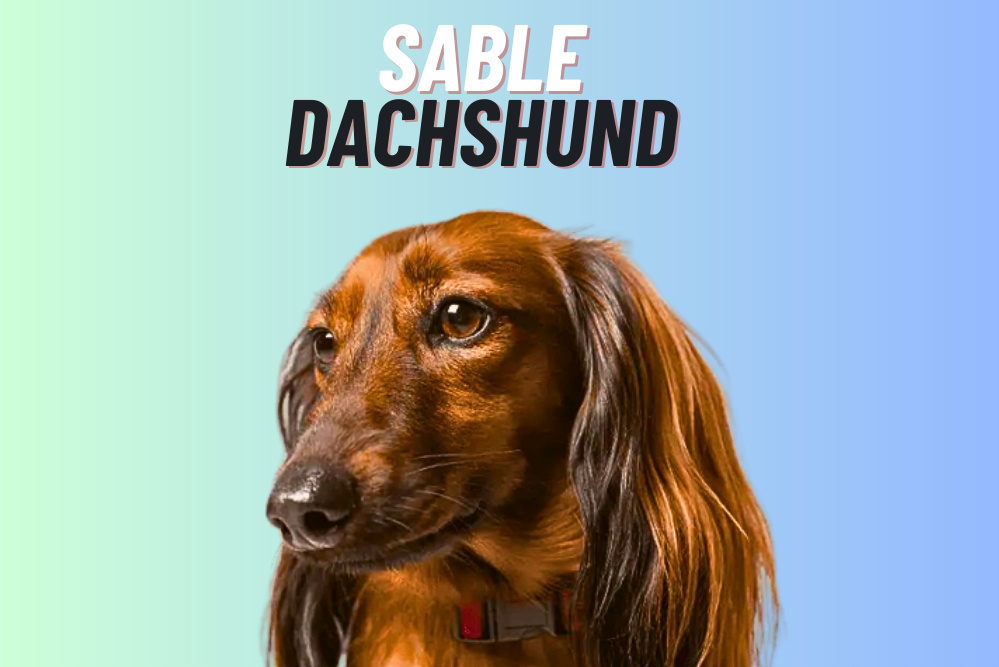Dachshunds can be great companions for senior people, as they are small in size, loyal, and affectionate. These dogs are known for their playful personalities, which can help provide seniors with a source of entertainment and joy.
Additionally, dachshunds require moderate exercise, which can be beneficial for seniors who are looking to maintain an active lifestyle.
However, it’s important to note that dachshunds can be stubborn and strong-willed, which may make them a challenge to train for some seniors. They are also prone to certain health issues, such as back problems, so it’s essential to provide them with proper care and exercise.
Overall, whether or not a dachshund is a good fit for a senior person depends on the individual’s lifestyle, preferences, and ability to provide the dog with the care and attention it needs
Dachshund dogs are perfect for old people.
While it is true that Dachshunds can make wonderful pets for older people, it’s important to note that no single breed is a perfect fit for everyone.
The suitability of a dog breed for an individual depends on a variety of factors, such as lifestyle, living situation, and personal preferences.
That being said, Dachshunds are often recommended for older people because they are small, low-maintenance dogs that do well in apartments and don’t require a lot of exercises.
They are also known for their affectionate and loyal personalities, which can provide companionship and emotional support to older owners.
However, Dachshunds can be prone to certain health issues, such as back problems due to their long spine and short legs, which can make them more challenging to care for.
It’s important for potential owners to research the breed thoroughly and consider the potential health risks before making a decision.
Overall, while Dachshunds can make great companions for older people, it’s important to remember that every individual and every dog is unique, and finding the right match takes careful consideration and research
What qualities do senior people want in a dog?
The qualities that senior people may look for in a dog can vary depending on their individual preferences and lifestyle. However, here are some qualities that may be particularly appealing to seniors:
- Calm temperament: A dog with a calm and gentle temperament can be a great companion for seniors who may not have the energy or mobility to keep up with a highly active dog.
- Low energy level: A dog with a low energy level can be a good match for seniors who may not be able to provide as much exercise or playtime as a younger person could.
- Good manners: A well-behaved dog that is well-trained and obedient can make it easier for seniors to care for them and can provide a sense of security and peace of mind.
- Size: A smaller dog can be a good fit for seniors who may have mobility issues or live in a smaller space.
- Affectionate: A dog that is affectionate and enjoys cuddling can provide comfort and companionship to seniors who may be feeling lonely.
- Easy to groom: A dog that doesn’t require a lot of grooming can be a good choice for seniors who may have difficulty with grooming tasks.
- Loyalty: A loyal dog that is devoted to its owner can provide a sense of companionship and security for seniors who may be living alone.
It’s important to note that every senior is unique and may have different preferences when it comes to selecting a dog. It’s important to consider the senior’s lifestyle, living situation, and abilities when choosing a dog that will be a good fit.
What is the best dog for an elderly person?
There are many different types of dogs for elderly people, depending on their needs and preferences. Some dog breeds that are popular for elderly people include the Golden Retriever, Australian Cattle Dog, Yorkie, Poodle, and Shih Tzu.
There are also specific dog breeds that are better suited for certain elderly people such as the Boston Terrier for those who like to Multitask and the Beagle for those who enjoy independent living.
What is the best small dog for a disabled person?
The best small dog breed for a disabled person depends on the specific needs and lifestyle of the individual. Here are some factors to consider when choosing a small dog breed for a disabled person:
Energy level: A dog with low to moderate energy levels may be more suitable for someone with limited mobility. Some small breeds that fit this description include Cavalier King Charles Spaniel, Bichon Frise, and Pekingese.
Trainability: A dog that is easy to train may be more suitable for a disabled person who may have difficulty controlling or handling the dog. Some small breeds that are known for their trainability include Poodle, Papillon, and Shetland Sheepdog.
Temperament: A dog with a gentle and calm temperament may be more suitable for someone with a disability. Some small breeds that fit this description include Boston Terrier, French Bulldog, and Italian Greyhound.
Ultimately, it is important to research different breeds and spend time with the dog before making a decision. It may also be helpful to consult with a veterinarian or a professional dog trainer to find a breed that best fits the specific needs and lifestyle of the disabled person.
Is 70 too old to get a dog?
Some people believe that getting a dog is too difficult or expensive for most people over the age of 70, especially if they have children. Others claim that getting a pet can be a great way to keep in touch with loved ones and learn new things. There are many reasons why getting a pet may be a good decision for older people, so it’s important to consider all of them before making an informed decision.
Do dogs help people with dementia?
Dementia is a serious mental illness that affects memory, thought, and movement. It’s caused by old age, injury, or disease. In some cases, dementia can lead to a loss of independence and can be so severe that people cannot live alone anymore.
There are many treatments available for dementia, but there is still much we don’t know about how dogs can help people with this condition. Some studies have shown that dog owners who have dementia are more likely to feel better when their dog is around them. Other research has shown that dogs can provide comfort and support to people with dementia in the form of body language, calming sounds, and petting.
Conclusion
Dachshunds make great pets that are fun to have and can be very useful in many ways. They enjoy playing, chasing balls, and other activities.
Dachshunds are the perfect dog for old people. They’re gentle, playful, and have a lot of good personalities. Additionally, they make great house pets for seniors who need someone to take care of and keep them company.




